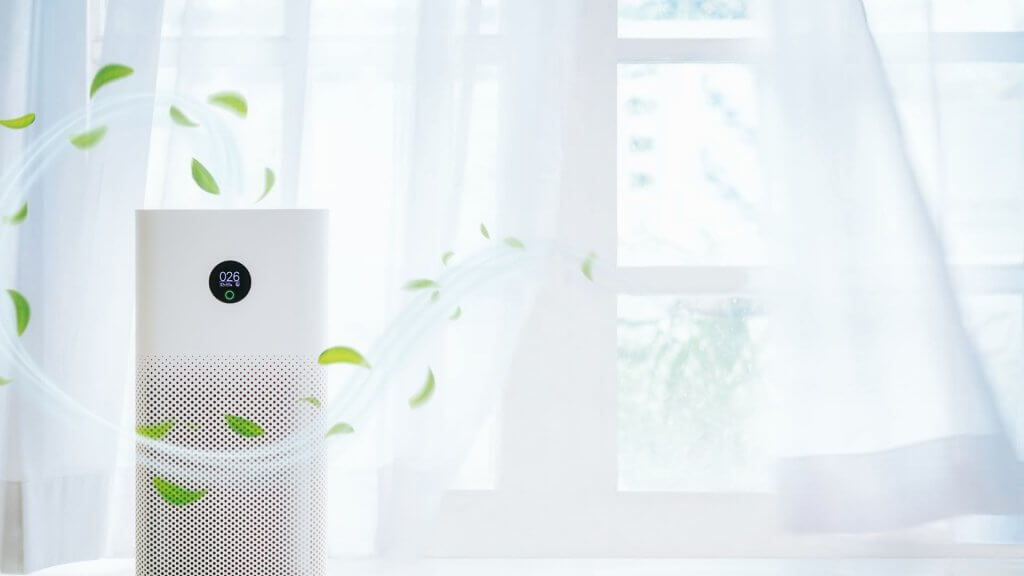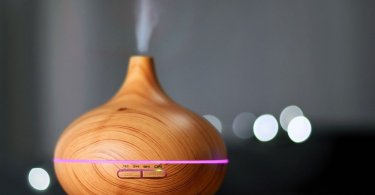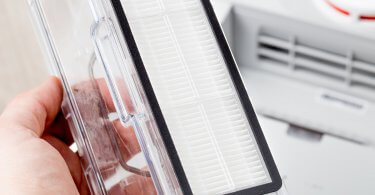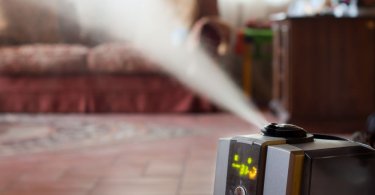Air purifiers, like the name, suggest cleaning the air around them. Therefore, it would be logical to reason that they remove all air pollutants, including bad smells, right? But do air purifiers help with bad smells? Has someone ever asked you a question, and you go ‘hmmm, well, kinda’? This is one of those questions. There is no clear-cut ‘yes or no’ answer to it.
Producers of the finest air purifiers say that they can eliminate unwanted scents from our settees by increasing air quality, but is this true?
To fully understand whether or not air purifiers help with bad smells, let’s examine how an air purifier works, how it removes bad smells, and what kind of smells it can remove.

How Does An Air Purifier Work?
Air purifiers clean the air by removing pollutants, allergens, and poisons instead of air filters, eliminating them from circulation. But how do air filters operate in practice?
Air purifiers are made up of two parts: a fan that draws in air and filters. There could be just one of these or multiple filters.
- Air is sucked in through the fan.
- The air is then passed through the filters, commonly made of paper and fiberglass fibers. Some high-end air purifiers have activated carbon or high-efficiency particulate air (HEPA) filters.
- The filter now traps pollutants and particles from the air, neutralizes them, and then the fresh air is pumped back into the living space.
Most contaminating particles are effectively filtered out this way, but some are likely to linger on soft and hard surfaces such as furniture or walls. The type of air purifier you buy and the filter determine which airborne particles are removed from the air. Most filters capture dust mites and pollen, large, gritty molecules averaging 5 microns or less.
How can air purifiers remove particles, though? High-efficiency filters are designed to remove pollutants and allergens as tiny as 2.5 microns, about the size of animal dander, using a thick network of fibers and many layers of complicated weaves.
Some air purifiers contain UV filters that utilize light to kill biological contaminants like mold and germs, while others with activated charcoal may remove gases like VOCs and smoke particles. As a result, air purifiers can assist with allergies to some level.
How Does An Air Purifier Remove Bad Smells?
It is pretty simple. For an air purifier to remove a bad smell, it has to be able to remove the particles or, better still, the molecules causing the small. Some air purifiers have filters that can do that. These filters are:
1. Activated Carbon Filters
Filters that employ activated carbon to remove airborne chemicals, particularly the volatile organic compounds (VOCs) that cause smells, are a potential choice for eliminating certain air aromas.
However, the efficiency of this strategy is based on a few aspects that should be taken into account while employing it.
To begin with, the carbon content utilized in the air filter has a significant impact on its capacity to remove smells. And the intricacy (thickness) of carbon structures inside the air filter has a significant impact on the filter’s overall capabilities.
The second issue is a process called ‘off-gassing.’ A sudden surge in humidity or temperature, for example, might cause the carbon inside the filter to get saturated or otherwise disturbed, causing the filter to release the volatile organic chemicals it is trying to stop right back into the air.
2. High-Efficiency Particulate (HEPA) Filter with Ultraviolet-C
A pure HEPA filter may be the ideal dark, damp breeding environment for germs, fungal spores, and mildew. HEPA filters with UV-C germicidal lamps are more effective. UV-C is a form of radiation that kills bacteria by successfully preventing them from reproducing.
However, the efficiency of UV-C light in air purifiers is unknown, as mold and bacteria would require a large dosage of light and a long contact time to be eliminated.
Even while this alternative claims to be more successful at decreasing musty scents in your house, the efficiency of HEPA filters with UV-C lights for odor reduction is a little iffy.
So, while theoretically, air purifiers with activated carbon filters or HEPA filters with UV-C light can remove bad smells, they aren’t a mainstay solution.
What Bad Smells Can An Air Purifier Remove?
Depending on the air purifier you choose, the bad smells removed by air purifiers differ. According to the EPA, some air purifiers can remove moldy scents, cooking odors, pet odors, cigarette smoke, and other persistent odors.
For example, rather than using an air freshener to cover the odor, use an air purifier to collect the lingering, odorous particles that have gotten into the air through your garbage can. The scent of your house will improve dramatically when the particles become caught in the air filter.
The most effective air purifiers will feature filters that could remove your pet’s dander and hair, and smells from dog kennels and litter boxes.
Make sure to check out my article about Will an Air Purifier Help With Cat Litter Box Smells to understand how that works.
After installing an air purifier in every room, your house will smell better, but it will also be free of numerous airborne contaminants that may make life difficult for individuals with allergies or asthma.
Smoke, unlike other odors, may be extremely difficult to remove. Particularly if it has had time to infiltrate your furniture, curtains, and carpet. Adding an air purifier to your room is a good first step if you want to substantially decrease or perhaps remove the smell of cigarettes from your house permanently.
Some air purifiers have both an activated carbon and a particle filter, allowing them to combat gas and chemical smells caused by construction materials, insecticides, and fire retardants.
Conclusion
The solution is to address the entire problem by eradicating the source of the scent as much as possible, rather than masking odors with even more strong aromas or using an inefficient HEPA filter.
After you’ve done everything regarding mold removal and regular cleaning, using an air purifier against scents will help you cope with residual and unpleasant aromas in your house.





Leave a Comment